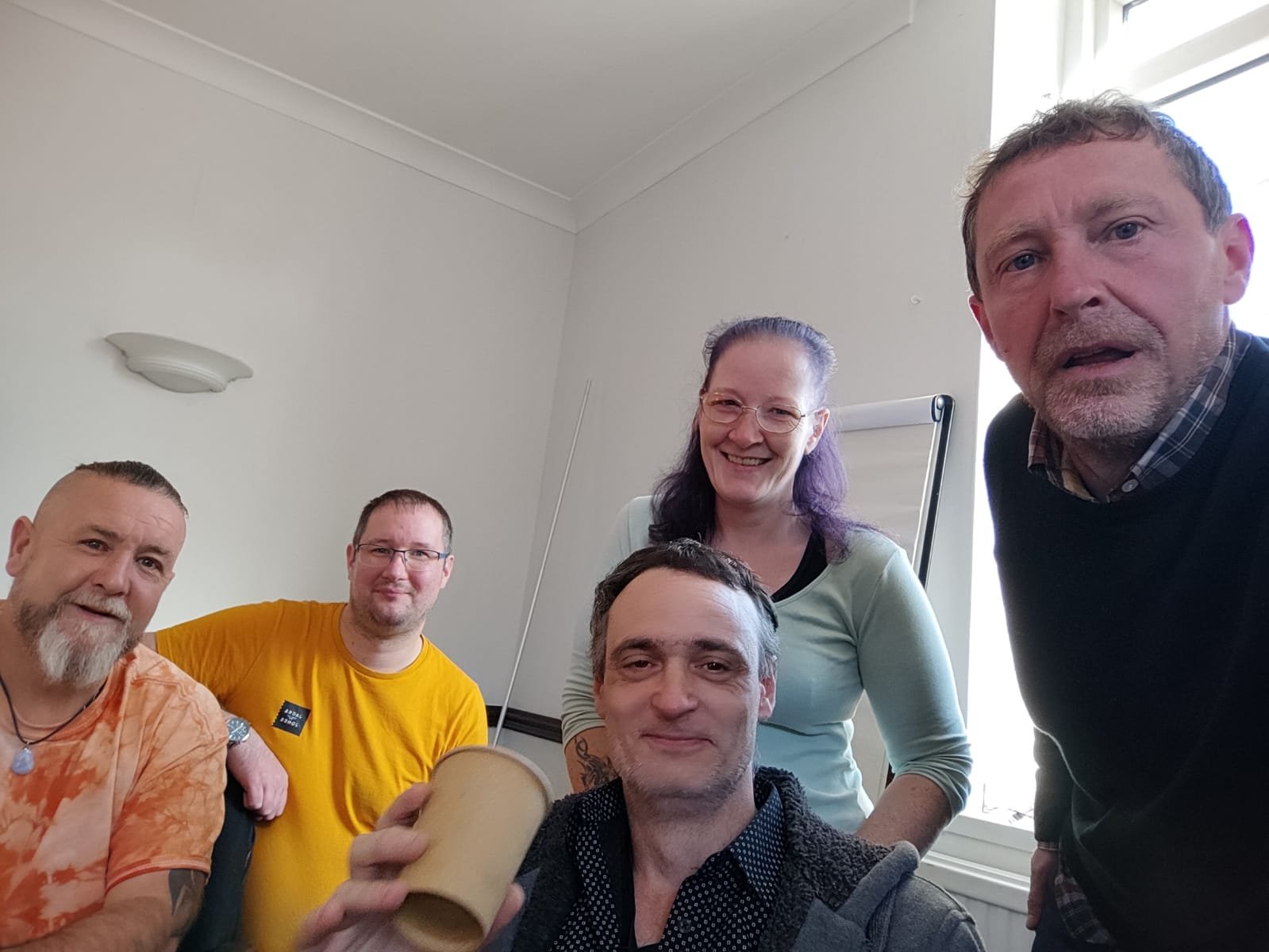The Power of Partnership
My name is Phil Parkes and I am the Network Coordinator for Expert Citizens (EC) and a member of the Power With community.
Expert Citizens (EC) are, to put it simply, a lived experience organisation. We believe that people with a lived experience of something should be involved in the decision making regarding that subject or have a say in how it is looked at. We do this in quite a few ways with Research and Evaluation being our main focus.
“Expert Citizens (EC) provided me with a place where I could deal with my issues without judgement, and also try to help others.”
I got involved with EC because I’d reached a stage in my life where I wanted and needed to stop blaming the world for my troubles and face up to them. I also knew that I didn’t want other people having to break down the same barriers I had faced. EC provided me with a place where I could deal with my issues without judgement, and also try to help others.
A few of us Expert Citizens
I, like a lot of people who volunteer for EC, had, let’s say, a “colourful” past. As a child, I was physically and mentally abused and developed an addiction and mental health problems early on. I was seen as disruptive and a problem wherever I went. This led me to become homeless quite young. I think I spent my first night on the streets at 16 years old and ended up in my first of many hostels at 17 years old. From there I was kind of “erratic” with my behaviour and movements because of all the issues I was facing. I did try and settle down and get into a calming relationship but that didn’t last and I ended up in Rhyl, of all places, street homeless for a good few years. A lot of other stuff went on during this period but I’d like to think I learnt from most of it and it all helped me see the world the way I see it now.
With help from family, friends, and probably most of all EC, I got myself back together. I became sober (2 years 8 months and counting), I started a meaningful relationship, and I am now engaged and have gained employment through EC.
It was through EC that I started to work with Alice, Carolina and Laura from Power With. I think I had only just signed my contract when I got the email inviting me to be a part of their pilot project, which was six weeks of meeting to decide the direction they would take as an organisation. I was joined by people across the country all with different backgrounds and passions, but all with that same desire to help others who had experienced what they had.
“People do not get up in the morning and decide to become an addict, have mental health problems, become homeless, or act in what services say is ‘erratic’ or ‘chaotic’”.
Because of my experience at EC, I was championing the need for every service to be trauma-informed as a standard. By saying trauma-informed I meant that they have the realisation that people do not get up in the morning and decide to become an addict, have mental health problems, become homeless or act in what services say is “erratic” or “chaotic”. These are all responses to some sort of trauma. Using myself as an example, I drank to forget. My mental health decline started at a young age because of my past and most of my behaviours were defence mechanisms or barriers to protect myself. I felt and still feel that if more services invested time into finding out why someone is presenting the way they are and not just excluding them because of their behaviour, it could go a long way to at least starting to solve some of the problems we see today.
As a group, we decided that one of the focuses of Power With should be showing other services how to co-produce and to use trauma-informed practices whilst doing so. This led me to adopt the principles of co-production into my working life much more.
Co-facilitating a workshop with Health and Social Care professionals on co-production with Power With
Soon enough, Alice, Carolina, and I set up an introduction to co-production training, which we have delivered twice already to staff at local authority and charity homelessness services, and more recently with Tony, to senior commissioners in health and social care. Whilst delivering this training I have noticed a few things:
1) There is a real desire to adopt a co-production approach and to work with lived experience organisations to help develop relationships between staff and the people they are working with.
2) To do this, there needs to be a change in how services are funded to allow more networking and maybe a different way to measure outcomes.
3) Most importantly, though, in my opinion, there seems to be a change in the mindset of both frontline staff and commissioners that change needs to happen and a willingness to try and ensure it does.
I stand by my idea that if services and individuals within that service worked in a way more conducive to co-production, whilst also maintaining a trauma-informed approach, the world would be a better place.



